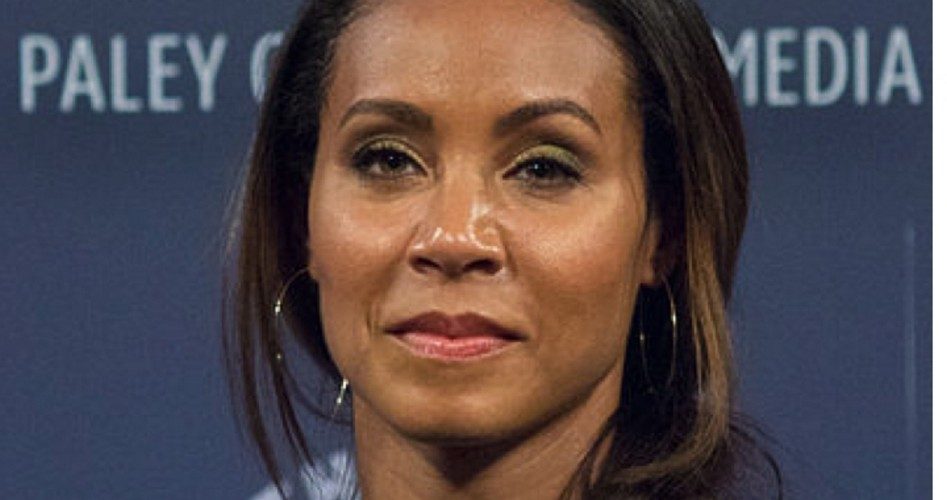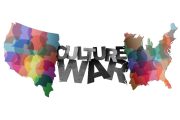
In today’s world, you could say that cries of “racism” are the last refuge of a scoundrel — and the first, too. One man who might agree is Gerald Molen, the Oscar-winning producer who gave us Schindler’s List. Reacting to the current brouhaha over this year’s Oscars featuring only white nominees, Molen called those screaming “racism” “spoiled brats” and said, writes the Hollywood Reporter, “There is no racism except for those who create an issue. That is the worst kind. Using such an ugly way of complaining.”
This issue has become quite the tempest in a teapot. “Whiter than the Oscars” has now been made a headline, used already to refer to the major weekend snowstorm and a Bernie Sanders political ad. A potty-mouthed Daily Beast writer named Kevin Fallon called the situation “bull****,” and Vanity Fair opined that the “Oscars are way too white, again” without specifying what the proper degree of whiteness might be. Then there are those who stoked these racial fires, the figures boycotting the event: Michael Moore, Spike Lee, and Will and Jada Pinkett Smith (shown). And about them Molen minced few words. Writes the Reporter, “‘The only comment that might have some legitimate substance is the one from Jada Pinkett. I understand her disappointment for her husband, but that doesn’t mean she is correct in her analysis,’ Molen said. ‘As far as Michael Moore is concerned, he is a socialist always looking to insert his brand of racist hatred. Spike Lee — haven’t I heard this from him before?’”
Apparently supporting the spoiled-brat assessment is NewsCult.com’s Felicia Brown, who, aside from proving that women can hurl profane bovine-excrement descriptives as well as men, wrote that Will Smith “didn’t get nominated for best actor in Concussion … because Concussion was terrible.” And making a more general observation was the Daily Mail’s showbiz columnist Baz Bamigboye — himself a black — who said simply, “The movies this year with black actors and black film-makers aren’t of that high quality.”
Yet there’s an even more basic point here: The notion of inordinately white Oscars — like the idea that police are more likely to shoot black suspects — is apparently as fictional as the award-winning movies themselves. After pointing out that blacks constitute 13.2 percent of the United States’ population, the Horn News reports:
According to a University of Southern California study, out of the top 100 films from 2007–2014, 12.5% of the actors were black. The difference between 12.5% and 13.2% is considered statistically insignificant.
… But what about the Academy Awards?
Since the 77th Academy Awards — held in February of 2005 — there have been a total of 192 different Oscar nominations for actors and actresses.
During that time period, Hollywood has seen 23 black actors and actresses nominated for these Academy Awards, or 12% of possible awards.
That means black actors and actresses have been outrageously cheated out of 1.2% of the Oscar bids, or less than two nominations.
But that 1.2% doesn’t mean much. In such a limited selection, large variations are expected. A 1.2% off from the average isn’t very significant at all.
… So what about award winners?
… Since 2000, there have been nine black actors and actresses who have won the Academy Award for best lead or supporting actor.
That’s nine Oscar wins out of 68 total awards since the 72nd Academy Awards, a perfect 13.2% rate of Oscar wins for black Americans.
And since 2005, black actors and actresses have won seven Oscars, out of 48 total winners; a 14.6% rate.
Yet the facts are lost amidst the demagoguery and emotionalism. Bamigboye writes that what “we certainly don’t want is well-meaning tokenism — the sort of attitude: ‘Oh, look, there are some black dudes in a half-decent movie, let’s nominate them for an Academy Award.’ That’s patronising and utterly offensive.” But this is precisely what we’ll get. And it’s not just the cultural affirmative action, which is the inevitable result of politically correct social pressure and is, as I defined it in 2008, “when people in the market and media privilege others — sometimes unconsciously — based upon the latter’s identification with a ‘victim group.’” The effecting of quotas is also quite explicit. As Bamigboye informed, President of Hollywood’s Academy Awards Cheryl Boone Isaacs “promised that the Academy will review its membership recruitment process ‘to bring about much-needed diversity’ in future nominations.” This brings us to a fashionable fallacy.
Even Bamigboye kowtows to the spirit of the age and writes, “In an ideal world, yes, of course, art should reflect our society.” But while this isn’t exactly what Oscar Wilde meant when saying “Art imitates life,” the reality is that it does in one way: in that there “is absolutely no evidence that statistical proportionality is the norm [in man’s endeavors and experiences] anywhere on Earth,” as Dr. Walter Williams wrote in 2011. And considering the arts, 99 percent of Renaissance painters were men. As for the rest of life, Williams provided some examples:
Jewish Americans are less than 3 percent of our population and only two-tenths of 1 percent of the world’s population. Yet between 1901 and 2010, Jews were 35 percent of American Nobel Laureate winners and 22 percent of the world’s.
… Asians routinely get the highest scores on the math portion of the SAT while blacks get the lowest. Men … are struck by lightning six times as often as women.
… During the 1960s, the Chinese minority in Malaysia received more university degrees than the Malay majority — including 400 engineering degrees compared with four for the Malays, even though Malays dominate the country politically. In Brazil’s state of São Paulo, more than two-thirds of the potatoes and 90 percent of the tomatoes produced were produced by people of Japanese ancestry.
As for much-touted “diversity,” is there any evidence whatsoever that increasing it in the above fields would improve them? “Our strength lies in our diversity” has become a mantra repeated thoughtlessly, a proposition no more logical than saying, as Ann Coulter comically wrote in 2009, “Chocolate pudding is dramatic irony” or “Nicolas Cage is a two-cycle engine.” She also pointed out, “‘Diversity’ is a difficulty to be overcome, not an advantage to be sought.”
And consider the implications of saying otherwise. Diversity can only be a strength if some groups bring assets to the table others don’t — if, putting it indelicately, some groups are superior to others in those respects. Yet making such a claim is also contrary to leftist dogma and supposedly renders one a bigot. So which is the myth: that there is “equality” (in worldly abilities) or that diversity is beneficial?
Whatever the race, color, creed, and sex of those on shows and silver screen, where there’s certainly little diversity is in the messages transmitted. Hollywood today almost exclusively disgorges cultural effluent and politically correct ideas. This includes the fiction of America as a land of white privilege and black bondage, a fiction which now, quite poetically, is being turned on Hollywood itself.



